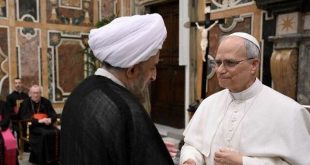This article outlines the potential to contribute to the scholarship on sectarianism and the literature on Muslims in Europe. While also previewing the five articles included in the special issue, it proposes a framework to unpack the diverse nature and complex shaping of Sunni.
The overall intention of the special issue ‘The Dynamics of Sunni–Shi‘a Relations in Europe’ is to call for a new research initiative aimed at establishing the significance of European Muslim-minority contexts for the study of Sunni–Shi‘a dynamics. This article outlines the potential to contribute to the scholarship on sectarianism and the literature on Muslims in Europe. While also previewing the five articles included in the special issue, it proposes a framework to unpack the diverse nature and complex shaping of Sunni–Shi‘a relations in European contexts.
In the past decade, manifestations of a Sunni–Shi‘a divide have drawn considerable public and scholarly attention in the history and contemporary dynamics of sectarianism within Islam.
Cycles of violence in Iraq, the sectarianisation of the Arab uprisings in the Gulf, descent into civil war in Syria and Yemen, the rise of the Islamic State movement, and Saudi–Iranian rivalry have directed the geographical focus of such attention predominantly to the Middle East. Beyond this region, some consideration has been paid to the situation in South Asia (inter alia, Zaman, 1998; Ali, 2010), South-East Asia (Formichi, 2014; Muwahidah, 2016) and Africa (Thurston, 2021; Vahed, 2022). In contrast, Sunni–Shi‘a relations in Europe remain understudied.
Co-edited with Emanuelle Degli Esposti, this special issue is intended as a call for a new research initiative aimed at establishing European Muslim-minority contexts as a geographical area through which to explore Sunni–Shi‘a relations. Two related questions guide this endeavour: What is the nature of these relations, and how are they shaped by various internal/external and local/international forces? Our premise is that intracommunal relations are multifaceted and dynamic. They include, but are not limited to, the conflictual relations on which academic, public and some primordialist emic Muslim discourses tend to focus (Majed, 2020: 347). Relations characterised by inclusion, co-operation or indifference also need full attention, as does the oft contradictory and inconsistent nature of these relations. To capture further the dynamics at play, this introductory article suggests a multidimensional contextual approach to Sunni–Shi‘a relations in Europe. The five articles contained in this special issue are not intended as a complete mapping of relations between Sunni and Shi‘a communities in the countries under consideration – Britain, Denmark, Finland and Norway. Given that actual knowledge of these relations remains scarce, emphasis is placed on fine-grained empirical research through specific case studies.
Bibliographic Information
Title: Sunni–Shi‘a Relations in Europe, Framing an Emerging Field of Research
Author(s): Elvire Corboz
Published in: Journal of Muslims in Europe 12 (2023).
Language: English
Length: 14 Pages
 Ijtihad Network Being Wise and Faithful Muslim in the Contemporary World
Ijtihad Network Being Wise and Faithful Muslim in the Contemporary World

